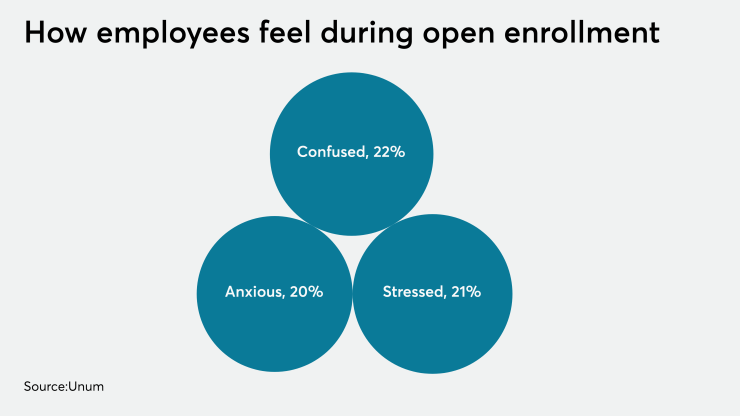Even if you are a veteran in choosing employer-sponsored benefits, the landscape is shifting. Over the past years, we’ve seen changes to mental health counseling stipends, extended maternity/paternity leave and family building. Companies across industries are realizing that in order to attract and retain talent, they need to provide best in class benefits that save employers unforeseen costs in the long run, and shows employees that their employers are invested in their wellbeing — in and out of the office.
With all these available options and only a short window to select what’s right for you, here’s what should you look out for during open enrollment.
Which benefits matter to me?
The beauty of a diverse workforce is that employees may represent various walks of life. However, this means that not all benefits make sense for every person. Perhaps your boss is prioritizing childcare for his toddler while your colleague is looking to refinance student loans. Whatever your life circumstance, ask yourself, “Which benefits are most pertinent to my life and life goals in the coming year?”
For instance, fertility benefits may not be immediately attractive at first glance, even if you’re actively thinking about starting a family. But 1 in 8 couples will be impacted by infertility and treatment without coverage can be wildly expensive. It’s important to make sure you’re thinking critically and getting all the necessary information when browsing for your benefits. Rule of thumb: if this could impact you in the coming year, even if you’re not 100% sure, opt in for coverage.
What’s actually covered?
During open enrollment, be sure to ask your benefits team about how robust each offering is and what’s included. A particular benefit may look like it has a lot to offer, but after further investigation you may uncover restrictions, unforeseen out of pocket costs and other obstacles that may make it harder for you to utilize the benefit.
With fertility benefits, many conventional carriers offer coverage with a dollar maximum, meaning you’d max out on coverage before completing a full IVF cycle. Plus, there are additional costs outside of the basic IVF procedure, like diagnostic testing, medications, and genetic testing which may come with a hefty price tag you’d have to pay for. Without adequate coverage, many people have to make cost-based decisions, forgoing the technology they need to reach a successful outcome.
As an alternative, Progyny’s coverage is bundled, meaning your entire treatment event is covered and you do not have to worry about what is or is not included, or fear running out of coverage mid-way through. Many vendors have similar disruptive solutions to ensure they’re not leaving their members high and dry during difficult times.
When sifting through options, be sure you’re asking what’s covered and not covered under your plan. A lot of benefits may seem expansive, but make sure you’re getting the most out of the coverage that’s available to you. Ask: Are the best clinics in your area included in your plan as “in-network”? Do you have to meet medical necessity requirements before being allowed to access your benefits?
Which benefits are supported?
Once you’ve opted in for benefits during open enrollment, how do you access your benefit? How do you move forward with treatment? Does your benefit provide access to the doctors in your area? Since many of these offerings are complex and without a proper onboarding, how can you be expected to understand next steps?
With the growing emphasis on mental health and concierge member experience, companies like Progyny try to eliminate some of the member’s burden and create an easy to use benefit model that provides member support. For example, our dedicated Patient Care Advocates — a concierge-style fertility coach — helps members navigate the clinical and emotional aspects of your fertility treatment, making a difficult process a bit easier.
Another important factor to consider when shopping for benefits is access to care where you live — are the doctors that your insurance covers close by and easy to get to? When choosing your benefits, look out for any information about access to support. The goal of a benefit is to make your life easier, not leave you feeling confused and stressed in times of need.
What do I do if I’m unhappy with the benefits offered during open enrollment?
Often times, employers are unaware of what an employee wants until it’s brought to their attention. If you are unhappy with the benefits offered, raise the issue with your HR team! You are your own best advocate and change begins with you.
Not sure where to start? If you are comfortable, speak with your colleagues. Seek out a company resource group to see if others have similar needs. This way you can help form a plan or a way to approach HR. Once you have an idea of what you need, talk to HR to explain why the proposed benefit would be pertinent to you and your colleagues. Employers understand that the key to keeping good talent is making sure they’re happy.
Open enrollment can be overwhelming but take advantage of the resources you have. Ask questions, do your research, and discuss the options with experts in your office. With an arsenal of helpful information at your disposal, open enrollment should be stress-free and get you excited for all of the incredible employer-sponsored benefits in your future.






